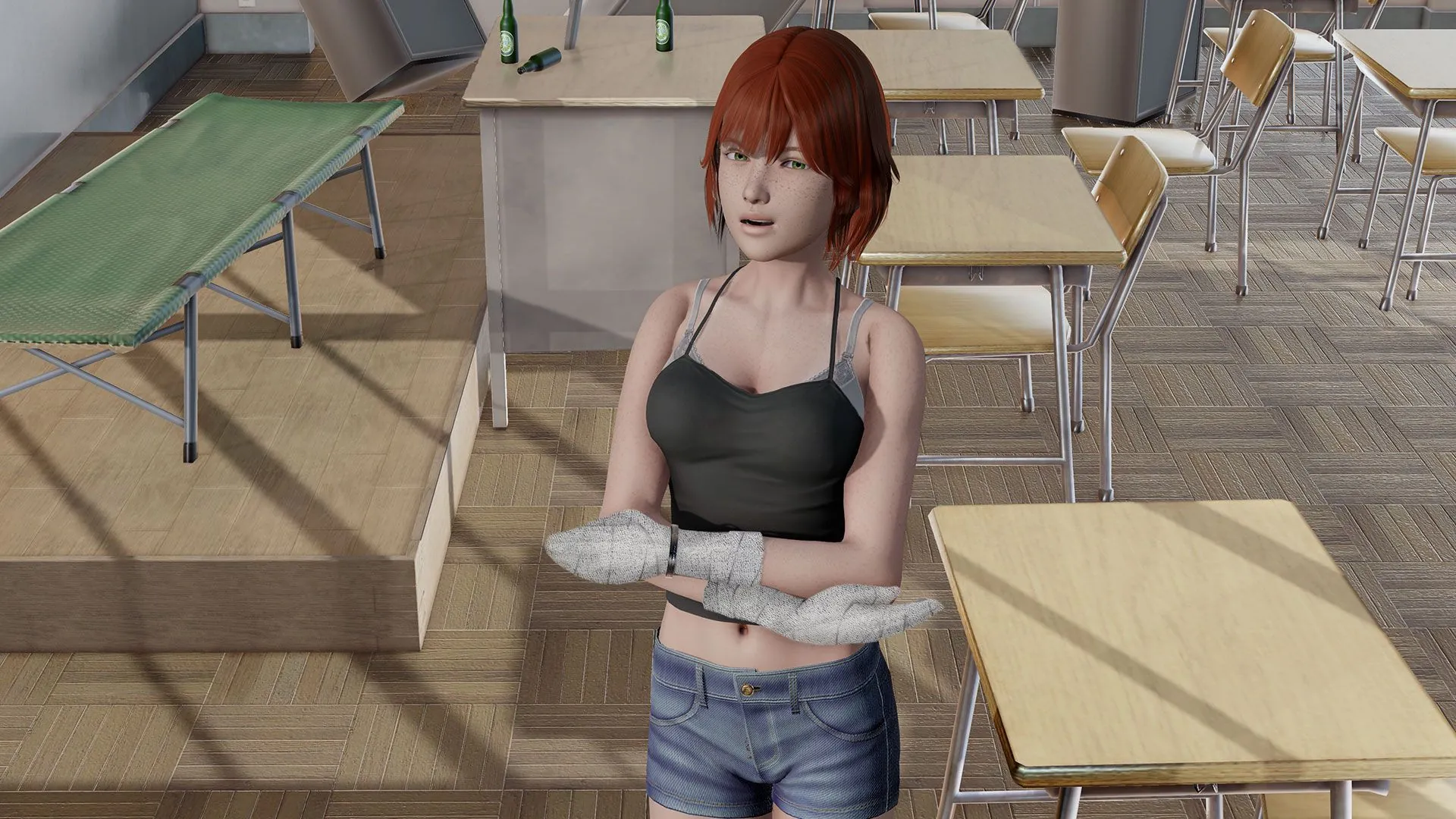
Strangers on Paper
Play Strangers on Paper
Strangers on Paper review
Exploring the Story, Gameplay, and Unique Features of Strangers on Paper
Strangers on Paper is a story-driven visual novel that invites players to reconnect with characters from their past through meaningful choices and rich storytelling. Unlike typical titles in its genre, this game emphasizes narrative depth and character development over explicit content, offering a unique experience that blends emotional engagement with interactive gameplay. In this article, we’ll explore what makes Strangers on Paper stand out, how its gameplay unfolds, and why it has captured the attention of visual novel enthusiasts.
Unpacking the Story and Themes of Strangers on Paper
Have you ever stumbled upon an old photograph or a forgotten letter and felt a wave of nostalgia so powerful it almost hurts? 😔 That’s the exact feeling Strangers on Paper masterfully captures and explores. This isn’t just a game; it’s a journey back into the echoes of your own past, asking you to pick up the threads of relationships you thought were lost forever. The Strangers on Paper story is built on this very foundation of reconnection, making it a profoundly personal experience from the very first click.
As the protagonist, you return to your sleepy hometown, a place brimming with half-remembered moments and faces you once knew. Your mission? To track down several old friends and piece together what happened to a group that simply drifted apart. The brilliance of this interactive storytelling game is how it makes this search feel entirely your own. You’re not just watching a story unfold; you are actively shaping it with every decision you make. 🤔
### What Is the Core Narrative?
At its heart, the Strangers on Paper story is a mystery of the human variety. There’s no grand conspiracy or world-ending threat. Instead, the central conflict is time, distance, and the quiet misunderstandings that can fracture even the closest of bonds. You play as a character who left town years ago, and your return acts as a catalyst, stirring up old memories, unresolved tensions, and dormant feelings among your former circle of friends.
The narrative unfolds through a series of conversations, flashbacks, and discoveries. You’ll spend your days visiting familiar locations—the old diner, the abandoned lookout point, the local library—each holding clues to not only what happened back then but also to who these people have become. The core drive isn’t to save the world; it’s to save these connections, or at least to understand why they faded. This focus makes the Strangers on Paper story an incredibly grounded and relatable emotional visual novel. It’s about the universal ache of wondering “what if?” and having the rare chance to actually find out.
### How Do Choices Impact the Story?
This is where Strangers on Paper truly shines as a pinnacle of interactive storytelling game design. The visual novel choices impact is not an illusion; it is the very engine of the experience. This isn’t a game where you choose between “good” and “evil” dialogue options. The choices are subtle, nuanced, and deeply human. Do you press someone for answers when they clearly look uncomfortable, or do you back off and give them space? 🤐 Do you share a painful memory to build trust, or do you keep your guard up?
I remember one playthrough where I decided to be brutally honest with a character named Leo about why I left town. In a previous attempt, I’d given a vague, placating answer. The visual novel choices impact was staggering. My honesty hurt him initially, but it cracked open a door of genuine communication that led to a much deeper, more authentic reconciliation later. The other path, where I was evasive, left our relationship polite but permanently distant. It taught me that in Strangers on Paper, true connection requires vulnerability, a risk that the game makes you feel every time.
The game’s structure is a web of narrative branches in games. Early, seemingly inconsequential decisions can butterfly-effect into entirely different scenes, conversations, and endings hours later.
Pro Tip: Don’t try to “game” the system on your first playthrough. Go with your gut. Your most authentic reactions will lead to the most rewarding story paths.
Here’s a small example of how a single early choice can create a significant branch:
| Your Choice | Immediate Reaction | Potential Long-Term Effect |
|---|---|---|
| Agree to help Alex keep a secret | Alex trusts you more; another character seems disappointed. | Unlocks a later scene where Alex confides in you, but may cause a rift with another friend. |
| Refuse to keep Alex’s secret | Alex is angry and withdraws; the other character respects your honesty. | Blocks the later confidant scene with Alex but opens up a new subplot with the other character. |
This level of visual novel choices impact ensures that no two stories are exactly alike, making your personal journey through the Strangers on Paper story uniquely yours.
### Exploring Themes of Connection and Identity
The Strangers on Paper themes are woven so intricately into the narrative that they feel less like topics being discussed and more like realities you are living. The two most prominent are the search for connection and the evolution of identity.
The game posits a powerful question: Can you ever truly go back? The people you’re trying to reconnect with aren’t the same kids you knew, and neither are you. This exploration of character development visual novel style is exceptional. You see how past traumas, successes, and failures have sculpted everyone. A once-bold and adventurous friend might now be cautious and settled. A quiet, reserved acquaintance might have blossomed into a confident leader. The game forces you to reconcile your memories with the people standing in front of you, which is a central part of its emotional visual novel punch. 💫
The Strangers on Paper themes also delve into the idea of curated identities. What versions of ourselves do we present to others? What do we hide? The game cleverly uses its mechanics to reflect this. The choices you make aren’t just about what you say, but who you choose to be in these renewed relationships. Are you the apologetic prodigal son returned? The confident success story? Or just a tired soul looking for a piece of home? Your choices in dialogue and action actively build this identity, and the other characters react to it authentically.
This focus makes the character development visual novel enthusiasts crave a two-way street. You aren’t just developing the protagonist; you are uncovering the deep, often hidden layers of the supporting cast, understanding their motivations and fears. By the end, the Strangers on Paper themes of acceptance and understanding land with immense weight. You learn that reconnecting isn’t about recreating the past, but about building something new and beautiful from its ruins, with the people you find there now. 🤝
Strangers on Paper offers a compelling visual novel experience that goes beyond typical genre expectations by focusing on meaningful storytelling and player-driven choices. Its rich narrative and nuanced themes create an engaging journey that resonates emotionally with players. Whether you’re a fan of interactive stories or looking for a game that explores complex relationships, Strangers on Paper is a title worth exploring. Dive in and discover the many paths your story can take.













